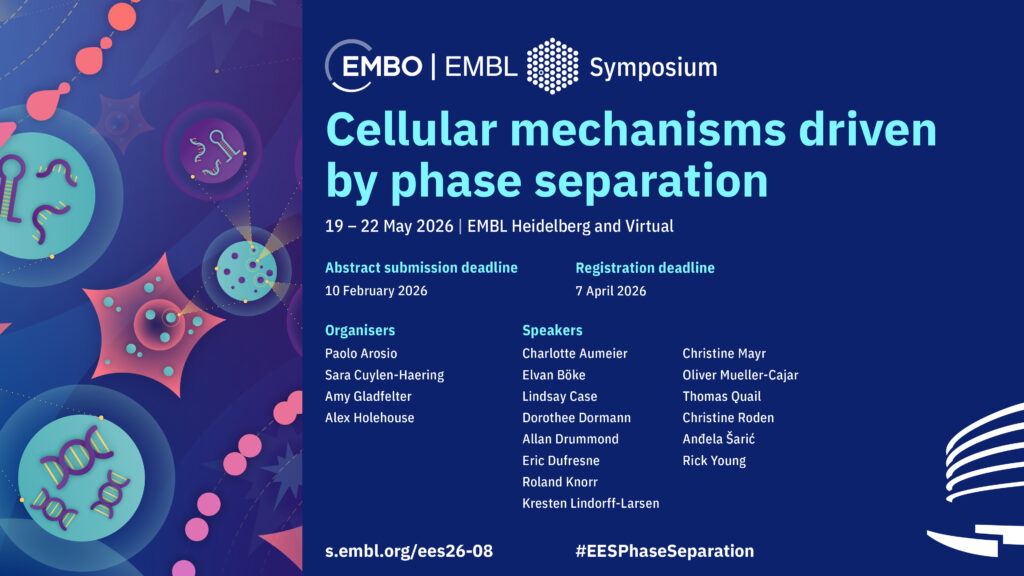Cellular mechanisms driven by phase separation
Media Partnership
between Synthetic Biology and Engineering and Cellular mechanisms driven by phase separation

The realisation that intracellular phase transitions underlie the formation of membrane-less compartments, also known as biomolecular condensates, in cells has transformed our understanding of cellular organisation in time and space. While the existence of membrane-less organelles – e.g., nucleoli, stress granules, and Cajal bodies – had been known for a long time, it was unclear until recently how these were formed, maintained, and regulated. Importantly, the interdisciplinary nature of the molecular and cellular principles that underlie condensate biology necessitates the combined expertise of cell biology, genetics, biochemistry, biophysics, and soft matter physics.
This interdisciplinary conference will bring together scientists from diverse fields to foster new discoveries and discuss emerging principles in condensate biology. Topics will range from basic biophysical principles of condensate formation to the role intracellular phase transitions play in cellular adaptation to the impact condensate dysregulation has on human disease. The conference will nurture a new generation of scientists who challenge the boundaries of existing fields and think creatively about how to tackle important emerging questions in cellular organisation, adaptation, and robustness.
Session topics
More details: https://www.embl.org/about/info/course-and-conference-office/events/EES26-08/?utm_source=Sciepublish&utm_medium=mpreferral&utm_id=EES26-08#vf-tabs__section-overview
between Synthetic Biology and Engineering and Cellular mechanisms driven by phase separation

The realisation that intracellular phase transitions underlie the formation of membrane-less compartments, also known as biomolecular condensates, in cells has transformed our understanding of cellular organisation in time and space. While the existence of membrane-less organelles – e.g., nucleoli, stress granules, and Cajal bodies – had been known for a long time, it was unclear until recently how these were formed, maintained, and regulated. Importantly, the interdisciplinary nature of the molecular and cellular principles that underlie condensate biology necessitates the combined expertise of cell biology, genetics, biochemistry, biophysics, and soft matter physics.
This interdisciplinary conference will bring together scientists from diverse fields to foster new discoveries and discuss emerging principles in condensate biology. Topics will range from basic biophysical principles of condensate formation to the role intracellular phase transitions play in cellular adaptation to the impact condensate dysregulation has on human disease. The conference will nurture a new generation of scientists who challenge the boundaries of existing fields and think creatively about how to tackle important emerging questions in cellular organisation, adaptation, and robustness.
Session topics
- Membraneless compartments in the cell
- Physical, structural and molecular principles of condensate form and function
- Condensates in adaptation
- Condensates in gene expression & genome organization
- Condensate crosstalk with cellular structures
- Condensates in disease
More details: https://www.embl.org/about/info/course-and-conference-office/events/EES26-08/?utm_source=Sciepublish&utm_medium=mpreferral&utm_id=EES26-08#vf-tabs__section-overview